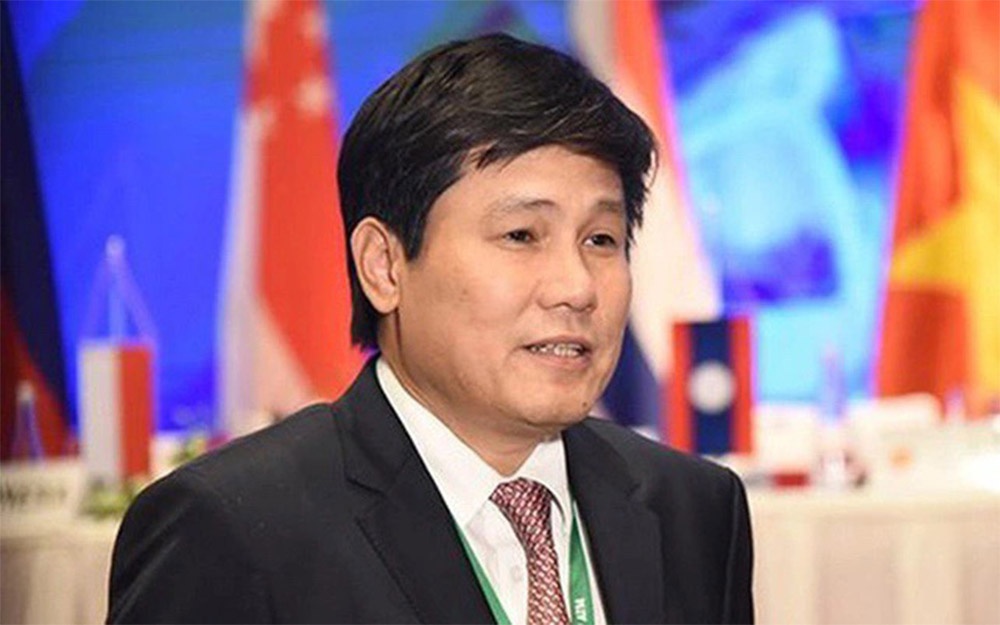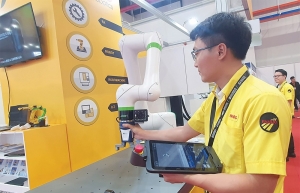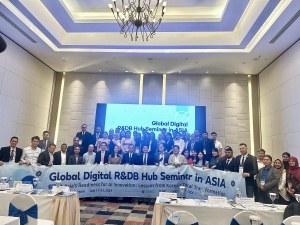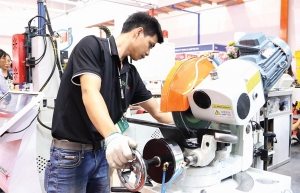Fresh opportunities from AI in Vietnamese aviation
These technologies are indeed playing a crucial role in the aviation industry, and we anticipate that opportunities will emerge in several trends.
 |
| Dinh Viet Thang, director, Civil Aviation Authority of Vietnam (CAAV) |
AI-enabled systems have the potential to help airlines reduce operational and overhead costs by optimising fleets and operations. For instance, Swiss International Airlines saved $5.4 million in 2022 after implementing AI technology to enhance efficiency. Vietnamese airlines could similarly utilise AI to forecast wind patterns more accurately, thereby improving accuracy by up to 40 per cent and reducing flight delays and cancellations.
AI can also predict flight delays by analysing real-time data, considering factors such as weather conditions and airport operations, thereby updating departure times and even rebooking customers’ flights.
Furthermore, AI technology aids in optimising flight plans to minimise fuel consumption by helping airlines avoid adverse weather conditions.
In the realm of price optimisation and revenue management for airlines, many carriers lose money due to flights operating with half-filled seats. To mitigate this, airlines can employ machine learning algorithms to maximise sales revenue through optimal booking strategies while minimising the risk of overbooking.
AI algorithms also assist in automating the management of materials, tools, and inventory by analysing usage patterns and maintenance schedules, ensuring spare parts are available when needed and thereby reducing management and storage costs.
Moreover, AI technology in maintenance helps identify potential aircraft problems before they occur, thus cutting down on maintenance costs and flight disruptions.
AI-powered facial recognition technology expedites check-in, immigration, and baggage handling processes, leading to reduced labour costs and increased efficiency.
When it comes to crew scheduling, factors such as flight numbers, backup personnel, leave schedules, transfers, transits, and rest requests are considered. Machine learning algorithms can automate this process by optimising crew rosters based on historical data.
In aircraft maintenance and assembly, technicians can improve repair and assembly processes, while engineers can expedite product design and certification using AI software and robotics, including ChatGPT.
By harnessing AI, airlines enhance customers’ flight experiences through personalised services, such as tailored itinerary recommendations, real-time updates on flight status and delays, AI chatbots for quick problem-solving, and optimised flight routes that reduce costs, thereby increasing customer retention.
To foster breakthroughs in policy for the digital transformation of the aviation industry and the application of cutting-edge technologies in the next phase, the CAAV underscores the need for specific solutions.
We have proposed amendments to Article 8 of the Law on Civil Aviation to enhance state management responsibilities in digital transformation within civil aviation. This includes promptly issuing legal documents, directives, and instructions related to digital transformation, IT application, and e-government initiatives in the civil aviation sector.
Additionally, we recommend maintaining a dedicated financial mechanism to draw in high-quality human resources, including IT professionals, to effectively execute digital transformation initiatives in the industry’s next developmental stage.
Recognising the critical leadership role in digital transformation, the CAAV has focused on providing industry-wide guidance and directives through resolutions of the CAAV Party Committee. This aims to strengthen the responsibility of the Party Committee secretary and leaders in digital transformation, IT application, and scientific advancements, thereby fostering new perspectives and driving progress in these areas.
 | Time is now for Vietnam to fully cultivate AI talent Vietnam is well-positioned to fully develop AI talent through government support, international collaboration, and an influx of foreign experts. |
 | Asia’s readiness for AI innovation: Lessons from South Korea’s digital transformation A landmark event to foster collaboration in AI research and development business across Asia by bringing together leading experts, scholars, government officials, and innovative communitie was held on July 11-12 in Hanoi. |
 | Leveraging the power of artificial intelligence in telecoms A lot is being said about AI and how it is impacting human life, as it is being leveraged in telecoms and radically transforming how mobile networks are being managed and deployed. |
 | AI transforming Vietnam’s businesses for the better While AI is a key in the process of innovation and accelerating economic development, it needs support from many sides to strengthen the workforce and related startups. |
What the stars mean:
★ Poor ★ ★ Promising ★★★ Good ★★★★ Very good ★★★★★ Exceptional
Related Contents
Latest News
More News
- Vietnam, New Zealand seek level-up in ties (February 19, 2026 | 18:06)
- Untapped potential in relations with Indonesia (February 19, 2026 | 17:56)
- German strengths match Vietnamese aspirations (February 19, 2026 | 17:40)
- Kim Long Motor and AOJ Suzhou enter strategic partnership (February 16, 2026 | 13:27)
- Haiphong welcomes long-term Euro investment (February 16, 2026 | 11:31)
- VIFC in Ho Chi Minh City officially launches (February 12, 2026 | 09:00)
- Norfund invests $4 million in Vietnam plastics recycling (February 11, 2026 | 11:51)
- Marico buys 75 per cent of Vietnam skincare startup Skinetiq (February 10, 2026 | 14:44)
- SCIC general director meets with Oman Investment Authority (February 10, 2026 | 14:14)
- G42 and Vietnamese consortium to build national AI infrastructure (February 09, 2026 | 17:32)

 Tag:
Tag:



















 Mobile Version
Mobile Version